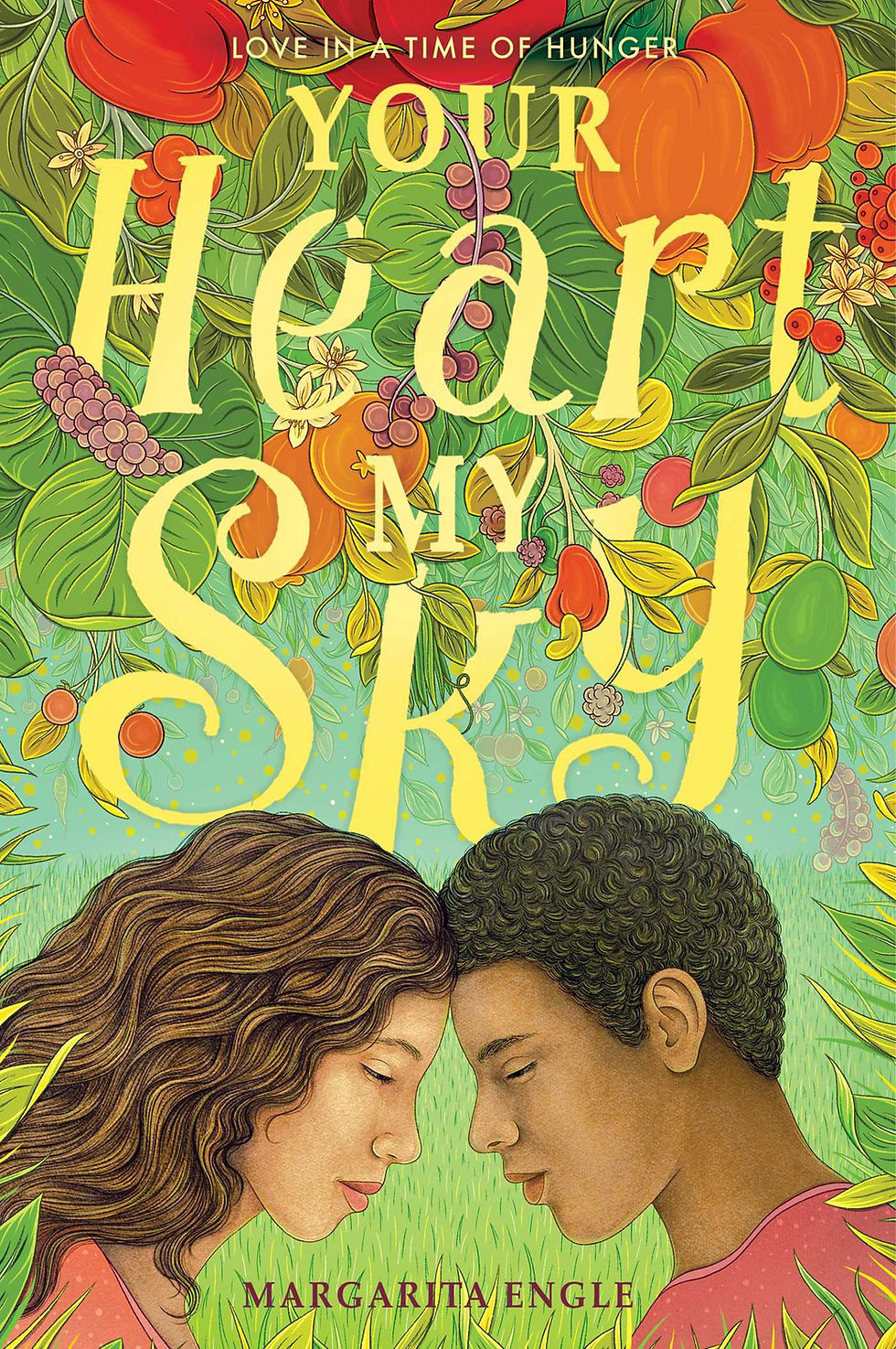Tugging On Hunger’s Heart In Margarita Engle’s Your Heart My Sky
- LibroMobile

- May 7, 2021
- 2 min read
by Patricia Amoroto
Written as a part of our Tiny Review Series

The first page of Your Heart My Sky by Margarita Engle hangs on the verse, “Hunger helps lonely beings sing,” and this book proves to be a lyrical manifestation of personal truths, albeit heartbreaking and eye-opening, as author Margarita Engle explores the virtues of love and food. The push and pull of heart and belly are defined in every free verse poem, enunciating conditions and gestures that in a harsh political landscape, may retain or reduce one’s revolutionary value.
We see this in Liana, Amado, and Paz the singing dog, three characters that introduce us to el periodo especial en tiempos de paz in the island of Cuba. The book is set in the summer of 1991, on the eve of the Pan-American Games, and Liana, starving but resolute, defies the volunteer farm labor compelled by the government. On her many walks, she meets and adopts Paz, who helps her connect to Amado.
Subsequent scenes delve into the individual psyche of the three, mapping a new political era in Cuba while revealing messages that are equal parts disturbing, radical, and necessary.
In their hunt for food, the main characters’ idealism surfaces: Liana’s noble rage, and Amado’s obliged pacifism. Paz the dog’s historical self-consciousness makes him a subtle link to the island’s past. Story has it that when Tainos flourished on the island, all dogs sang, until the arrival of the conquistadors in 1400s. That day onwards, music was muted and dogs learned to howl and bellow.
These idealisms interplay with quotidian life in the tropics.
Engle does justice to the interplay of idealism and tropical cynicism by interspersing the main characters’ perspectives in fragments: one verse is almost an answer to another. There is duality; a hint of magical realism probes the political situation.Engle strategically places truths in passages that give the reader another perspective on the situation in Cuba. We see suppression of rights, starvation, and silence. Carnality appears as desperate hunger for protein but also as hormonal urges. There is fight or flight: the hopeless abandon of just loving or literally hurling oneself into the sea for a better life in another country. There is history, in the form of a singing dog that reminds us of something more poetic that prescribes freedom, clarity, safety, and peace, instead of barking that portends another dictatorship.
The book talks about it all: abandonment, transitions, fruits & vegetable, secret gardens and suppressed emotions, and even prison in the form of indoctrination and literally the one of metal bars.
A tranquil audacity permeates this book. To quote Amado in a scene where he must decide between land or sea: “resolve, invent, struggle, amar,” and the reader may find themselves feeling that as well. The book interrogates the ideas readers may hold of this Caribbean nation. Engle beckons the reader to resolve, invent, struggle, and eventually love the perspective of this bottom-up historical re-telling of a romanticized narrative as they soak in the perspectives of Liana, Amado, and Paz.
Patricia Amoroto works for a LA-based non-profit that focuses on Energy Equity. She was born and raised in the Philippines.
224 pages | $18.99 (hardcover)
